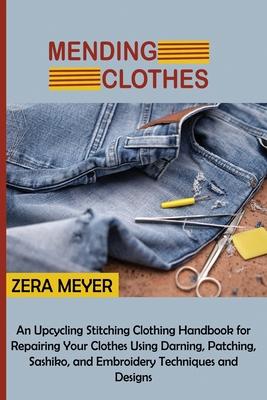When last did you hemmed a pair of bad jeans, darned a sock, or patched a garment? Most of our forefathers were adept at repairing, mending, stitching, and reworking their clothes to extend their life span. The ability to mend clothes can provide you with personal, environmental, financial, and systemic benefits. Even more, it's accessible - anybody can learn to mend to some extent.
Your clothes, including that expensive outfit that is so precious to you, will ultimately exhibit symptoms of wear and tear, no matter much you care for them. Why not attempt mending them instead of throwing them away? It may appear daunting of a task to do, but with a few simple guidelines and basic skills, anyone can accomplish it and bring their worn-out clothes back to life.
As a child, I wondered how my grandmother sewed and patched some of my torn clothes so much so that they came out very attractive. She would join different fabrics together and sow them over the hole and so many other techniques she used. All these fascinated me, and I hoped to do the same one day. Unfortunately, she passed on before I could learn from her. My love for mending, like my grandmother, forced me to learn the skills involved to gain knowledge of several mending techniques.
Most of what I learned over the years has been collated and captured in this book, Mending Clothes.
Several learning points are covered in this book, such as:
- An explanation of the clothe mending process and the importance of mending your old clothes.Basic sewing skills and hand sewing mending stitches (running, slip, whip stitch, etc.) to get you started.Vital tips and tricks before and when mending your clothes.Mending techniques for your clothes such as darning, patching, sashiko, and embroidery.Sample clothe mending projects (such as repairing holes in jeans, shirts, socks, etc. using different methods) with illustrations that will help to sharpen your mending skills
And so much more!
So, what are you waiting for?
Get a copy of this book RIGHT NOW to get started
